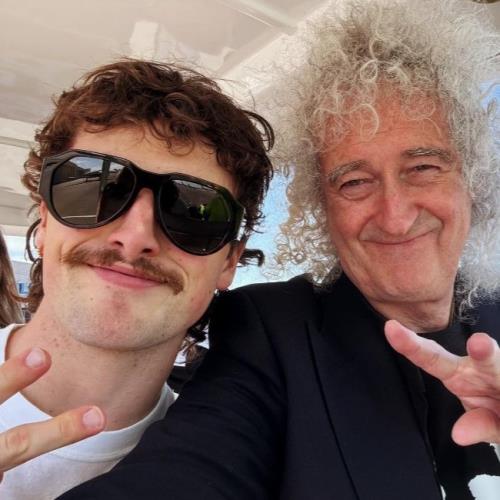“I was someplace else,” Nick tells his sister. “I couldn’t help you guys”
The Carter family has experienced an immense amount of tragedy in their lives, including the drug-induced deaths of Aaron Carter and his sisters Leslie and Bobbie Jean. Surviving siblings Nick and Angel Carter reflect on their losses in new documentary The Carters: Hurts to Love You, out Tuesday on Paramount+.
In an exclusive clip from the second episode of the docuseries, Nick and Angel sit on a beach together for a tearful reflection of what they’ve been through. “I was traveling. I was in another place. I saw things happen to Aaron. I saw things happen to you. And I couldn’t do anything,” Nick says through tears to his little sister, who was also Aaron’s twin. “I was someplace else. I couldn’t help you guys.”
As the clip proceeds, Nick and Angel share their survivors’ remorse, but show empathy to one another, telling each other that they are proud of who they are today.
In the Soleil Moon Frye-directed doc, the story of the Carter family is told in painful detail. Nick, Angel and friends of the family, like Melissa Joan Hart, Scout Willis and longtime manager Lori Knight, dig into the fractures that set in as both Nick and Aaron pursued global pop stardom. The surviving siblings explore the greed and negligence that traumatized the young children as well as the way addiction ended not only their siblings’ lives but their father’s as well. The story is told through intimate, never-before-seen home videos and painful recollections of abuse and loneliness.
“It was a profound and powerful experience for me to witness this brother and sister’s journey while making this documentary. To have seen the love that they share will stay with me forever,” Moon Frye tells Rolling Stone. “The conversation on the beach that Nick and Angel experienced is really a love letter to their departed siblings. It was also a deeply personal moment for me as well. I hope that sharing their story will lead to more dialogue and conversations surrounding mental health, addiction, and intergenerational trauma.”







